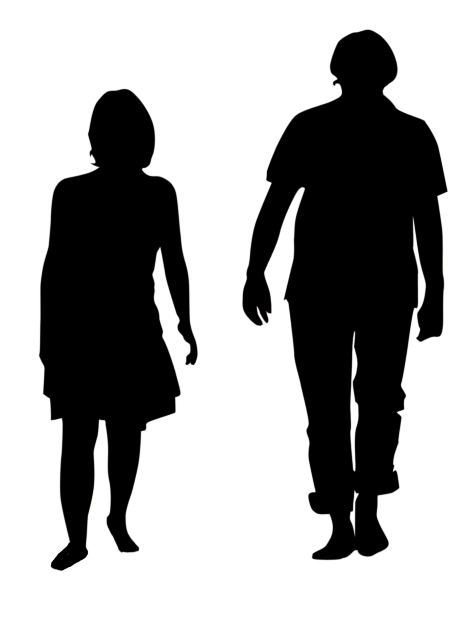Childhood Emotional Neglect: Man vs. Woman

“CEN people, both men and women, are exceptionally likable folk. This is part of the tragedy of CEN. These are some of the most lovable people in the world, and yet they feel the most alone.”
I often get asked whether Childhood Emotional Neglect (CEN) affects men and women differently. My answer is, “yes, it does.” Although the essential effects are the same, some of those effects tend to play out differently in men than in women.
In Running on Empty: Overcome Your Childhood Emotional Neglect I tried to represent both genders in my descriptions, examples, and vignettes. Before I talk about this more, I need to mention one large caveat. The differences that I’ve seen between CEN men and women are general descriptions that do not apply across the board. I often see the masculine effects in women and vice-versa. Since there is a significant crossover, please don’t take these differences too firmly or stringently. And definitely, do not think there is something wrong with you if you fit more neatly into the opposite gender. It does not indicate a problem of any kind.
As you look over the table below, you may notice that the differences are not very surprising. In recent years, neuroscientists have found that men have more connections in their brains from front to back and within each hemisphere than women, making them more suited to perception and coordinated actions. Women, on the other hand, have more connections between the hemispheres. This gives women an advantage in the areas of intuition and interpersonal processing.
TABLE OF CEN GENDER DIFFERENCES
| Adult CEN Characteristic | Women | Men |
| Emptiness or numbness | Attempt to fill selves with other people and their needs | Seek adventure to feel something or isolate themselves |
| Counter-Dependence | Seek to fill others’ needs in place of their own | Fervently embrace and pride themselves on independence & competence |
| Little Compassion For Self | Harsh judgments drive down self-esteem | Harsh judgments become pressure to be “the best,” often at work. May become driven. |
| Fatal Flaw | Feel unlikeable or unlovable | Feel invisible and overlooked |
| Struggles With Self-Discipline | Self-care suffers: eating, exercise, sleep and rest | May become overly or compulsively self-disciplined at times |
| Alexithymia | May learn the language of emotion but it’s hard to apply it to themselves | Emotions go underground and come out as irritability |
| Self-Directed Anger and Blame | Anger is directed at themselves and may turn into depression | Anger is more likely to also be turned outward at others |
Generally, men and women suffer equally when it comes to CEN. But women tend to be harder on themselves and to become excessive caretakers and givers, ignoring their own needs and feelings. They can end up feeling drained and exhausted because they are not taking care of themselves and have difficulty saying “no” to others.
Men, on the other hand, are more inclined to embrace and value the feelings of isolation and disconnection that go along with CEN. Men with CEN may misperceive their isolation as a sign of masculine strength. Yet these men are also pained by the feeling that they are not connected when they are with other people. They struggle with feeling ignored and overlooked by others but lack the words to express it.
One thing that I have seen over and over in CEN men is an acute discomfort (often anxiety) in large groups of people, especially when they are expected to socialize. In these situations, their intensive individuality combines with the feeling of being ignored to create a special type of misery.
The other primary difference I see between women and men’s CEN is what they do with their feelings. Women feel ashamed for having emotions. They turn their anger against themselves. Men are more likely to be totally unaware that they have feelings at all.
Anger is more accepted in men than in women in today’s world. So men don’t suppress their anger as much as women. Instead, they may alternate between suppressing it and then feeling it unexpectedly, sometimes directing it towards others and sometimes toward themselves.
What happens when two people with CEN form a relationship or marriage? I can tell you that it makes for some very interesting challenges. Check back to see a future blog on this topic.
Some of the most remarkable characteristics of people with CEN deserve mention here. CEN people, both men, and women are exceptionally likable folk. This is part of the tragedy of CEN. These are some of the most lovable people in the world, and yet they feel the most alone. They are typically excessively competent, stand-up folks; yet they feel invisible. They suffer because some vital ingredient is missing from their lives. Yet that missing ingredient is their own emotions, which are not missing; just suppressed.
If I could gather all of the CEN men and women in the world together in one huge room, here is what I would say to them:
“You are not invisible, and you are not to blame. You have no reason to be ashamed. Ask yourself what you feel and why, and you will find your true self there. Your emotions will become your compass, your comfort, and your connection to life. And then you will realize how very much you matter.”
To learn much more about how to heal your marriage if you and/or your spouse grew up with Childhood Emotional Neglect see the book, Running On Empty No More: Transform Your Relationships With Your Partner, Your Parents & Your Children.
To find out whether you grew up with CEN, Take The Emotional Neglect Test. It’s free.
To learn more about Childhood Emotional Neglect, see my first book Running on Empty.
